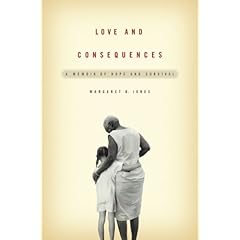
Publishers should be kicking themselves. For the second time in less than a week, a critically-acclaimed memoir has been exposed as a fraud.
In "Love and Consequences," a critically acclaimed memoir published last week, Margaret B. Jones wrote about her life as a half-white, half-Native American girl growing up in South-Central Los Angeles as a foster child among gang-bangers, running drugs for the Bloods.
The problem is that none of it is true.
Margaret B. Jones is a pseudonym for Margaret Seltzer, who is all white and grew up in the well-to-do Sherman Oaks section of Los Angeles, in the San Fernando Valley, with her biological family. She graduated from the Campbell Hall School, a private Episcopal day school in the North Hollywood neighborhood. She has never lived with a foster family, nor did she run drugs for any gang members. Nor did she graduate from the University of Oregon, as she had claimed.
This story comes less than a week after it was revealed that the Holocaust memoir, “Misha: A Mémoire of the Holocaust Years” by Misha Defonseca, was a complete fabrication, and it's been only two years since most of James Frey's best-selling “A Million Little Pieces” was proven to be wildly embellished, exaggerated, and falsified. The accuracy of another best-selling memoir, “A Long Way Gone: Memoirs of a Boy Soldier” by Ishmael Beah are also being raised after series of articles by an Australian newspaper. (Beah, stands by what he wrote.)
What's going on here? Are publishers too lazy to investigate stories that seem too good to be true? Do authors feel their story won't be published or taken seriously unless they make up parts of their life?
Granted, memoirs are an imperfect art and are only as good as the author's memory. But there's a difference between recalling that an advent happened on a Monday when it, in fact, happened on Wednesday, and simply making up scenes, characters, or an entire life.
Whatever is happening, it's not good for the memoirs genre. Not only does it make it less likely that publishers will pass on memoirs in the future, but that readers are less likely to purchase a memoir when browsing bookstore shelves.
To restore readers' trust in the genre authors and publishers need to come up with a voluntary set of standards to which they're willing to adhere. Though not a comprehensive list, here are three ways to start.
1. If asked by the publisher, authors should be prepared to verify as much of the story as possible. This includes names and contact information of people who can corroborate the story, places, and approximate dates when events occurred. This may not always be easy to do if someone is writing about events that happened several decades ago but the author should be willing to authenticate as much as the story as possible. If authors knew there was a good possibility their story could be vetted before it hit the press, it would probably discourage liars like Seltzer and Frey from trying to get published.
2. Publishers need to be willing to investigate. If the scenes, dialogue, or the overall narrative sounds contrived or too good to good to be true, it's time to do some fact checking. Reviewers of Love and Consequences mentioned that the dialogue seemed "embellished" and scenes felt "self-consciously novelistic at times." Such red flags should lead the publishers to do some simple fact checking. A background check and a few phone calls could have been done quickly and revealed that Seltzer's story was a lie.
3. The reader should be notified up front if names and places have been changed or events have been compressed or told in a different order than they actually happened. Some memoirs have such a disclaimer but it's by no means an industry standard. If authors changed something, let the readers know why it was done. Such a disclaimer doesn't make a memoir any less powerful but goes a long way to establishing trust with the reader.
Memoirs can make powerful and entertaining reading. Standards would go a long way to rebuilding readers’ trust in a genre that is suffering from brazen acts of dishonesty and deceit. Without some standards in place, future memoirs run the risk of being bypassed by readers altogether, or worse, becoming classified as fantasized fiction.
Note: This article was originoally published at A Ton of Authors and a Wannabe blog

